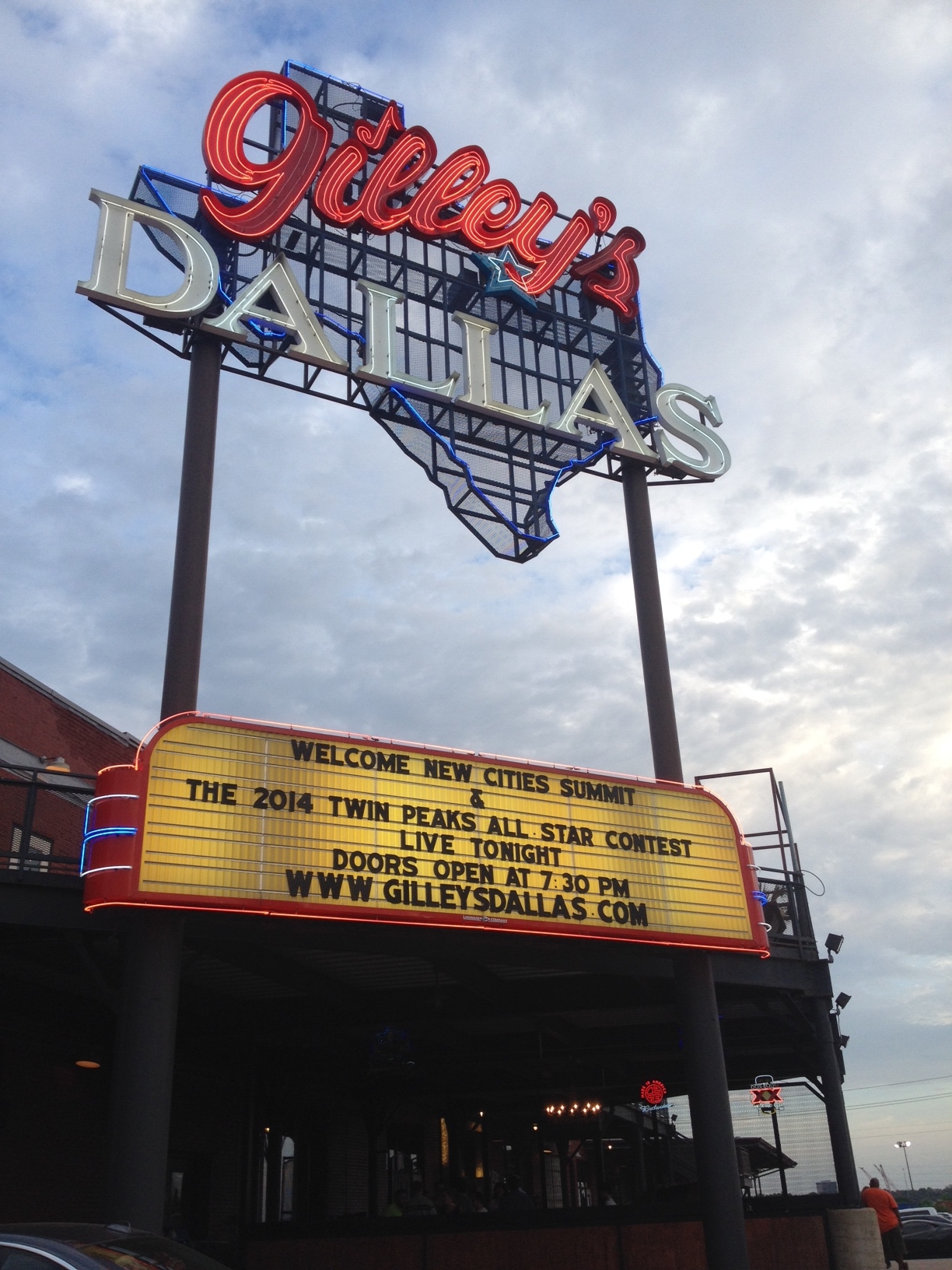
As Peter has mentioned, Maxwell Anderson was a driving force behind bringing the New Cities Summit to Dallas. When Anderson called John Rossant, chairman of the New Cities Foundation, and Mathieu Lefevre, executive director of New Cities Foundation, and told them to check out Dallas, Lefevre was doubtful. “It’s pretty bad,” was his first thought of Dallas, but by the end of his first trip, Lefevre was sold. “Actually, [Dallas] is awesome. There’s a dynamism,” he said. “Not every city is willing to reimagine itself.” The selling point? The Arts District.
For the past two days, 800 urban leaders from 51 countries have spent time on the streets of Dallas for the summit. This year was the first time the summit had come to the United States.
I was only able to attend the morning sessions on both days and the after parties. Mayor Rawlings did a good job of welcoming people with the first speech of the session. He and Fort Worth Mayor Betsy Price were often seen together throughout the first two days. Maxwell Anderson, Jeremy Strick, Catherine Cuellar, and countless leaders from Dallas attended the sessions and the evening parties. One of my favorite speakers was Jaime Lerner, former mayor of Curitiba and former governor of Parana, Brazil. He not only compared cars to cigarettes, but also to mother-in-laws saying, “The car is like your mother-in-law. You have to have a good relationship with her, but you can’t let her rule your life.” I also enjoyed Reinier de Graaf, partner at OMA, who seemed to be coming to terms with the term “smart cities” during the keynote panel session yesterday morning. “I think I figured out what I have against the term ‘smart city,’” he said during a discussion titled “Beyond the Smart City: Towards a New Paradigm.” “The reality is that most cities are not smart.”
Last night, I stopped by the closing party at Gilley’s, where I talked to a few people about their impressions of Dallas after spending two days here talking urbanism. Paula Souza, an urban manager from Brazil, and Gustavo Maia, an entrepreneur from Brazil, had never been here before. They envisioned big trucks, tall buildings, and blond people. What they saw instead: nobody. They were shocked at how empty the streets were. Maia said he went to at least 20 bars (pretty impressive in just two days), and there were no crowds. They huddled close to each other near the edge of the dance floor and did so, because, as they said, they’re used to having very little personal space. However, Souza said, the tourist aspects were great. She walked to the Old Red Museum and the Aquarium, and enjoyed visiting both.
Shay Stevens, the Mars Urban Arts Curator of the Washington Performing Arts in D.C., visited Dallas 10 years ago. At that time, Deep Ellum was the topic of most every conversation. She said she was surprised that it was hardly mentioned during this trip, and that she felt like the spotlight had been taken away from it.

She expected more artists and creative types at the conference and was surprised by how many corporations were represented. At one point, she wondered why she was there. “I realized I need to be here because I need to hear what the other conversations are to really understand the evolution of cities in the future and to be able to interject ideas that may be able to help solve the problems across sectors.”
I wasn’t as struck by the number of corporations represented at the conference, but more so by the lack of women on the keynote/morning sessions. Out of the 20 people who spoke on the main stage Monday and Tuesday mornings, none were women. After the first morning, enough people had asked about it that Lefevre brought it up that afternoon. I missed that session, so I asked him about it last night. “We had one big cancellation for the opening panel,” he said. “But that would have only been one. We had 30 percent female speakers. It’s not nearly what it should be, because it should be 50 percent. So I think the issue of having women speak at these high-level events is incredibly important. I’m glad we’ve been called out.”
Here’s hoping that next year’s conference will have more women onstage throughout the entire day.
As the evening wrapped up last night and more people filed out (probably next door to the 2014 Twin Peaks All Star Contest), I asked Lefevre to identify one thing Dallas needs to work on. His response was part of the resounding theme from the conference. “[Dallas needs] less reliance on the car,” he said. “Don’t lose the car entirely, just make the car a part of the journey, but not the entire thing.”
Stevens, who stayed at a hotel off Walnut Hill, agreed. She took DART to the conference and all the other activities. She said one thing Dallas needs to work on is clearly labeling pedestrian right-of-ways. “It’s very basic, but it’s something that I noticed,” she said.

Today, summit-goers are doing various site visits or returning home. Though they’re taking with them some new contacts and a lot of notes, they’re also taking along their new perceptions of Dallas. For some, that means they think Dallas has a lot of busy roads and empty streets, but Lefevre believes people are leaving with a little more than that. “They saw the Dallas Museum of Art,” he said. “They had a VIP tour of the Nur exhibit. They saw the Nasher Sculpture Center. Nobody expected that out of Dallas.”




